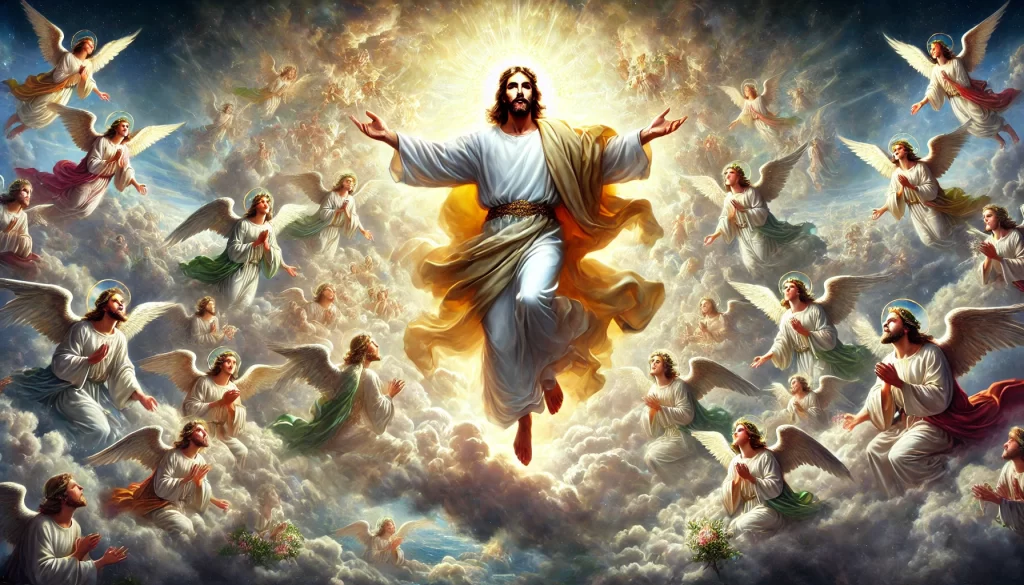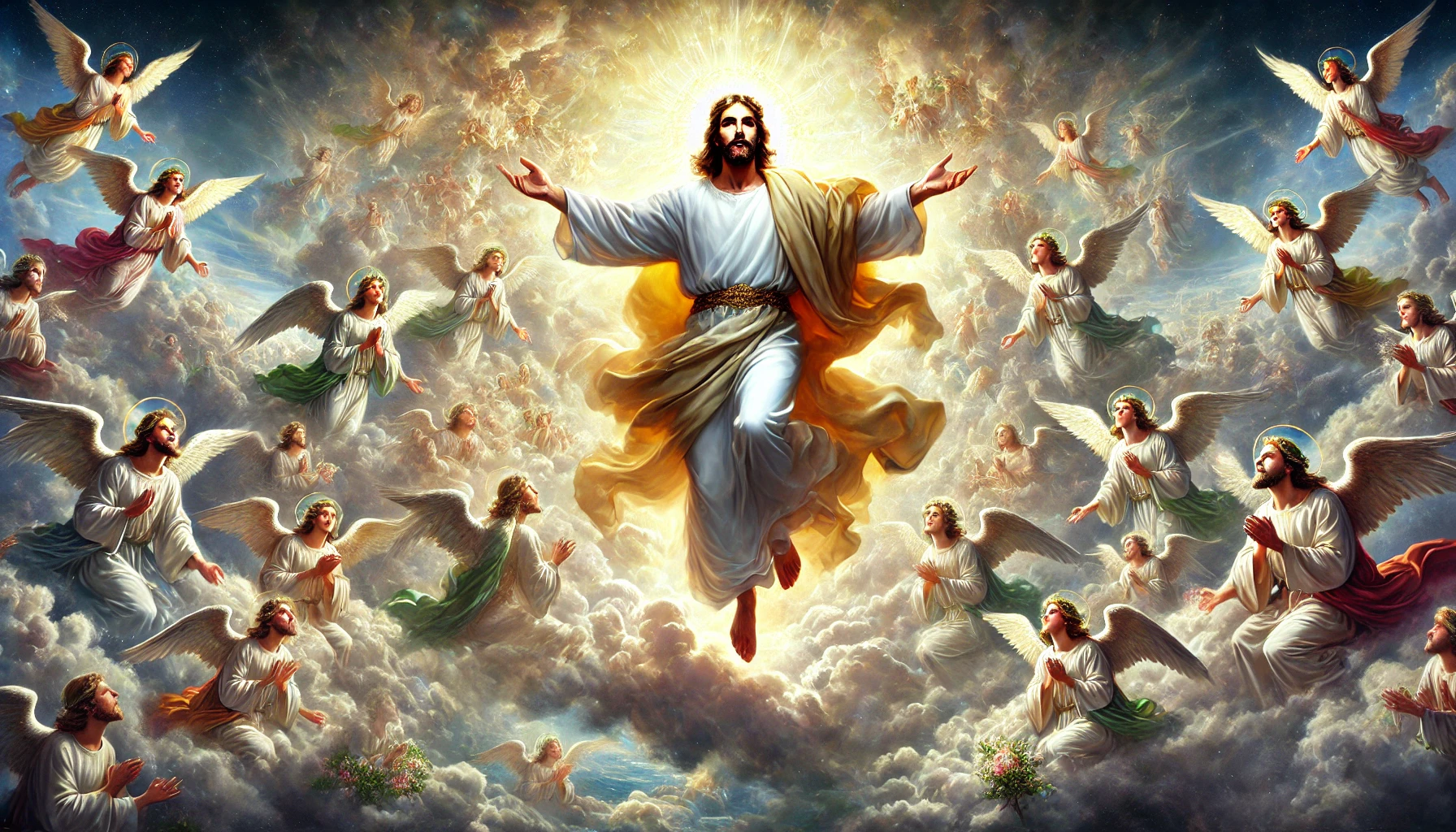
It shouldn’t be too long into joining a church that you hear something that strikes you as rather peculiar—The Second Coming of Jesus Christ… not to mention whispers of an equally peculiar book for which this events takes center stage—Revelation.
For pagans, who dominated the globe from earliest human memory, and Atheists, who are cooking up similar intentions of their own and gaining ground in the implementation of the plot, the world has no meaning or purpose. It just is and the human presence on the planet is just as purposeless and meaningless no matter how much joy we get from cat videos, or how much virtue we feel while picketing for an equal outcomes world. Why should you have more than me just because you work and produce and I spend my day watching cat videos?
Now, imagine the wonder of a person drowning in a pagan “reality,” who opens the pages of Scripture and reads what is waiting there for him. There is One Holy God who made the world with a purpose and a plan. It tells the reader that he, along with all humans, has been assigned a special role in the fulfillment of that plan… God’s special agents in Creation, filled with His Holy Spirit, walking in intimate communion with the Creator, knowing, known, loving and loved.
Imagine his grief when he reads how his forebears forsook this honor and rebelled against the Creator, dooming him to his present state. Yet, hope springs when he discovers that God has not wholly abandoned them, deserve it as they do. Rather the Lord has revealed a yet more amazing part of the plan—Man’s redemption and restoration. Through the substitutionary atonement provided by the Creator Himself, his own repentance and obedience to the Maker’s teaching,[1] God be praised, he can discover the path of life laid down in the created order and rejoin the mission of the ages, demanding as it is.
This mission has a beginning in millennia past. It has a trajectory in human history. It has epochs of growth, like the great flood, the calling of Abraham, the creation of Israel, the giving of Torah, the revelations of God’s prophets, the coming of God’s Messiah to redeem Mankind and establish His church. It also, shockingly enough, has a culmination, an end goal, a climax leading to participation in some yet more glorious union and cooperation with God in the age which follows.
The prophetic books of the Old Testament cast repeated visions for this eventuality. The end is doom to those who perish in their sins, denying God His right of place or openly rejecting Him, but it is eternal, abiding life for those who repent and believe. Some of these prophets wrote books called “Apocalyptic” literature which uses powerful images borrowed from the pagan world around Israel to speak powerfully about the Creator’s eventual victory over all who make war against Him and against His people. They are weird… like really weird if you compare them to something like Anne of Green Gables, or even the Gospel of Mark.
Jesus is recorded in the biblical Gospels speaking of this plan several times,[2] like at the last supper before His arrest and crucifixion saying, “I tell you I will not drink again of this fruit of the vine until that day when I drink it new with you in my Father’s kingdom.”[3] His return to bring the age of the earth to a close is promised by angels in Acts 1:10-11, “And while they were gazing into heaven as he went, behold, two men stood by them in white robes, and said, “Men of Galilee, why do you stand looking into heaven? This Jesus, who was taken up from you into heaven, will come in the same way as you saw him go into heaven.”
Peter boasted of the privilege of participating in the Church’s stage of the divine plan, saying, “He has caused us to be born again to a living hope through the resurrection of Jesus Christ from the dead, to an inheritance that is imperishable, undefiled, and unfading, kept in heaven for you, who by God’s power are being guarded through faith for a salvation ready to be revealed in the last time.”[4]
This event is also a primary point of discussion in a couple of the Apostle Paul’s letters, like 2 Thessalonians 1:6-10, “God considers it just to repay with affliction those who afflict you, and to grant relief to you… when the Lord Jesus is revealed from heaven with his mighty angels in flaming fire, inflicting vengeance on those who do not know God…when he comes on that day to be glorified in his saints, and to be marveled at among all who have believed.”
The Second Coming of Christ is a core tenant of Christianity, declared by Paul, “the Blessed Hope” as he longs aloud, “Looking for that blessed hope, and the glorious appearing of the great God and our Saviour Jesus Christ, Who gave himself for us, that he might redeem us from all iniquity, and purify unto himself a peculiar people, zealous of good works.”[5] It is also, however, a source of more than a little controversy as we who believe strive to anticipate the details of the events that will “soon” come upon us.
The Coming of Jesus feels a lot sooner to me now than it did when, as a child, I thought the events thought to be predicted in the pages of Scripture—like a one-world, God-hating government—too impossible for my lifetime. Then we digitalized the world.
“Behold, he is coming with the clouds, and every eye will see him, even those who pierced him, and all tribes of the earth will wail on account of him. Even so. Amen. ‘I am the Alpha and the Omega,’ says the Lord God, ‘who is and who was and who is to come, the Almighty.’”[6]
“Behold, I am coming soon, bringing my recompense with me, to repay each one for what he has done.”[7]
[1] This is not to suggest that any act of man can earn his salvation, but rather that the full richness of life before God is enjoyed only by those who respond aright to God’s gracious and salvific work on Man’s behalf.
[2] Matthew 7, 16, 24, 25, 26, 28; Mark 13; Luke 8, 12, 17, & 21 etc.
[3] Matthew 26:29,
[4] 1 Peter 1:3-5
[5] Titus 2:13-14
[6] Revelation 1:7–8
[7] Revelation 22:12
Discover more from Biblical Literacy with Dr. Andrew D. Sargent
Subscribe to get the latest posts sent to your email.


